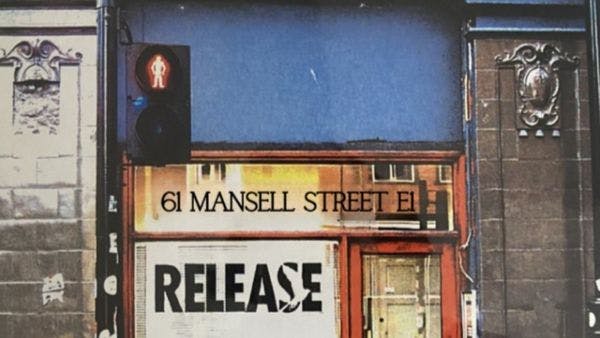Release
In the face of more drug deaths in Britain, we must build a community of resistance
At Release, we have received an unprecedented number of requests for support from people who use drugs and professionals alike who are scared about the recent changes in the drug supply. We also fear what this may mean for people who use drugs across the United Kingdom, and we are looking to the international community for help.
The UK’s drug supply is getting increasingly dangerous: this comes from the rapid appearance of a group of synthetic opioids called nitazenes across drug supplies. Rapid drug checking analysis identified nitazenes across heroin, benzodiazepine, and even cannabis supplies, and are already linked to several deaths across the country.
This is likely to increase the number of fatal overdoses, particularly because people that are consuming presumed non-opioids are unlikely to carry naloxone with them, and would not have the means to reverse any overdoses should they occur.
Drug services are failing to reach many people who use drugs in the UK, particularly racialised communities, as well as people impacted by patriarchy.
Drug services are failing to reach many people who use drugs in the UK, particularly racialised communities, as well as people impacted by patriarchy. This is particularly true for people already marginalised by criminalisation. In the UK, many small-scale harm reduction efforts have been swallowed up by large drug treatment companies, losing funding in competitive tenders against these companies This, in turn, has left marginalised communities without peer-to-peer drugs’ support or resources. In many parts of the country, even accessing needle and syringe programmes anonymously has become impossible. In the midst of a toxic drug supply crisis, this means that communities of oppressed people will continue to experience mass death.
All this happens within the already-lethal environment for British people who use drugs: the country already tops the leagues as the European nation with the most drug-related deaths, with 12 people dying on average a day from opioid overdoses. Poor people in this country are six times more likely to die from drugs than wealthy people; in Scotland, this figure increases to people in the poorest areas being 18 times more likely to die a drug-related death.
Despite consistent warnings on changing drug concerns and the need for emergency action, policymakers remain steadfast in their refusal to explore alternatives to a prohibitionist approach to drugs. Both the Labour and Conservative parties believe that the best approach to control drug harms is to seize record amounts of substances at the border and continue to incarcerate those who use drugs. Labour has committed to increasing police numbers if they come into power. We already know that policing is a barrier to people engaging with services, and there is evidence to show that increased policing increases the likelihood of experiencing an overdose. Doubling-down on more of the same punitive and carceral policies that created this lethal environment in the first place will only lead to more death.
We know that policing is a barrier to people engaging with services, and there is evidence to show that increased policing increases the likelihood of experiencing an overdose.
With most of drug-related public funding going into treatment services which fail to deliver true harm reduction, those of us in real community with people who use drugs need to resort to grassroots forms of community care in order to keep ourselves and each other alive.
What can be done?
Release currently and historically advocates for changing drug laws towards more compassionate solutions based on social and racial justice, rather than punishment. As a response to the nitazenes crisis, we have also decided to fundraise to open a Harm Reduction Hub in London.
We have become tired of constantly trying to raise attention around drug-related harms and decided that we needed to take more direct action.
We have reached a point where we need to change our advocacy tactics and build a grassroots movement and our own systems of care. Along the way, we hope to build a better model of harm reduction practices which can be implemented across the country.
Initially, the space will offer:
- A community living room space for anyone, with access to tea, coffee, and phone chargers
- Harm reduction supplies
- Signposting to relevant health and social services where it is desired
- Access to Release’s legal advocates
- Health information
- ‘Know your rights’ literature
- Merchandise for sale to contribute to ongoing operating costs
- A welcoming space to simply have a friendly conversation
Eventually, the space aims to be a meeting place for harm reductionists across the capital to gather, share best practice, and strategize on expanding the movement.
How you can support
Release has started a fundraiser this week to raise the funds needed to open and run the space.
We hope that friends within our harm reduction community and those embedded in other social justice struggles will support us in delivering this space. While the conditions which have brought about this plan are dire, this is also a great opportunity to breathe life into the British harm reduction movement that has been co-opted and defanged by public health authorities and abstinence ideology.
Release will begin construction immediately, expanding the room’s functions and breadth of services as they can.
We’re tired of waiting for change – we’re going to start making it happen.
The room is the beginning of a year of actions and community mobilisation. We’re tired of waiting for change – we’re going to start making it happen.
The link to the fundraising campaign can be found here: https://www.justgiving.com/campaign/harmreduxhub
